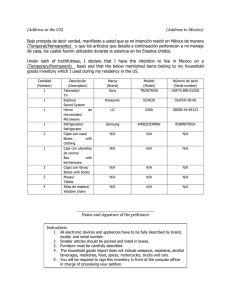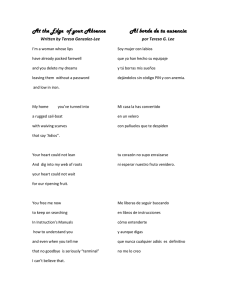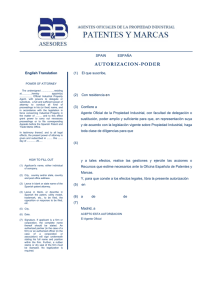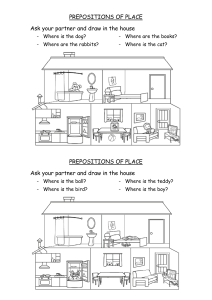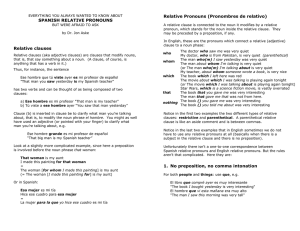Prepositions - BBC Active | Languages
Anuncio
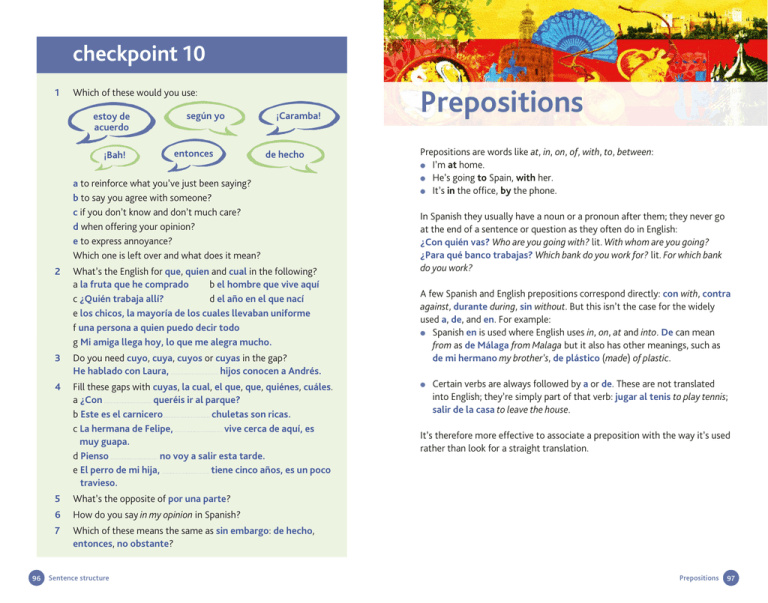
checkpoint 10 1 Which of these would you use: estoy de acuerdo ¡Bah! según yo entonces ¡Caramba! de hecho a to reinforce what you’ve just been saying? b to say you agree with someone? c if you don’t know and don’t much care? d when offering your opinion? e to express annoyance? Which one is left over and what does it mean? 2 3 What’s the English for que, quien and cual in the following? a la fruta que he comprado b el hombre que vive aquí c ¿Quién trabaja allí? d el año en el que nací e los chicos, la mayoría de los cuales llevaban uniforme f una persona a quien puedo decir todo g Mi amiga llega hoy, lo que me alegra mucho. Do you need cuyo, cuya, cuyos or cuyas in the gap? He hablado con Laura, hijos conocen a Andrés. 4 Fill these gaps with cuyas, la cual, el que, que, quiénes, cuáles. queréis ir al parque? a ¿Con b Este es el carnicero chuletas son ricas. c La hermana de Felipe, vive cerca de aquí, es muy guapa. d Pienso no voy a salir esta tarde. e El perro de mi hija, tiene cinco años, es un poco travieso. 5 Prepositions Prepositions are words like at, in, on, of, with, to, between: I’m at home. l He’s going to Spain, with her. l It’s in the office, by the phone. l In Spanish they usually have a noun or a pronoun after them; they never go at the end of a sentence or question as they often do in English: ¿Con quién vas? Who are you going with? lit. With whom are you going? ¿Para qué banco trabajas? Which bank do you work for? lit. For which bank do you work? A few Spanish and English prepositions correspond directly: con with, contra against, durante during, sin without. But this isn’t the case for the widely used a, de, and en. For example: l Spanish en is used where English uses in, on, at and into. De can mean from as de Málaga from Malaga but it also has other meanings, such as de mi hermano my brother’s, de plástico (made) of plastic. l Certain verbs are always followed by a or de. These are not translated into English; they’re simply part of that verb: jugar al tenis to play tennis; salir de la casa to leave the house. It’s therefore more effective to associate a preposition with the way it’s used rather than look for a straight translation. What’s the opposite of por una parte? 6 How do you say in my opinion in Spanish? 7 96 Which of these means the same as sin embargo: de hecho, entonces, no obstante? Sentence structure Prepositions 97

